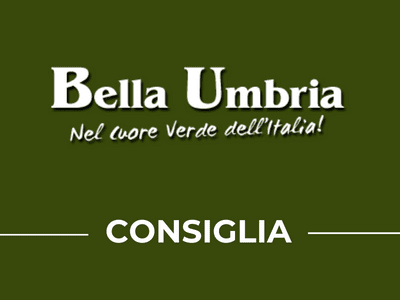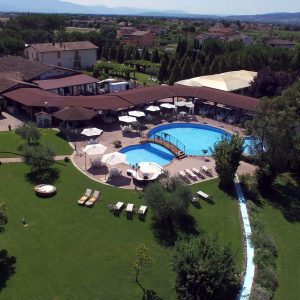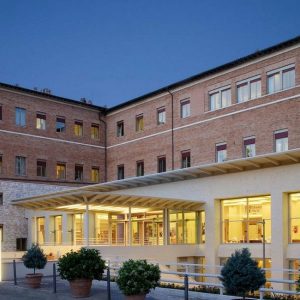▌ Discover Baschi
#BELLAUMBRIA
{“translation”:[{“lang”:”it”,”content”:”
Il nome di Baschi, che domina dall’alto una vallata nella quale scorre una parte del tratto umbro del fiume Tevere, proviene dal latino “vas: vasca”.
Dalla scoperta di importanti reperti archeologici, quali il frammento bronzeo denominato “Fragmentum Tudertinum” il quale reca delle iscrizioni della cosiddetta “Lex Tudertina” si evince la chiara connotazione romana di questo paese. Nel Medioevo, con la costruzione del castello, inizia la dominazione della famiglia dei Baschi sui territori vicini. Più volte in quegli anni la cittadina fu contesa fra i Baschi ,guelfi di Orvieto, e i ghibellini di Todi finché un matrimonio tra alcuni esponenti delle due famiglie al potere fece cessare le ostilità, proiettando Baschi verso la sfera di influenza di Orvieto.
>>Vuoi vedere Baschi? Consulta ora le offerte dei migliori agriturismi nelle vicinanze.
>> Ci sono offerte in scadenza per hotel nella zona di Baschi! Clicca e consultale subito.
Particolarmente suggestivo è il borgo medievale, detto “I buchi” per via della taglia, minuta per non dire lillipuziana, delle case, dei vicoli, delle porte e delle finestre. Un vero e proprio “piccolo mondo antico”, perfettamente conservato.
Molto bella è la Chiesa di San Nicolò, dichiarata monumento nazionale e progettata nel 1574 da Ippolito Scalza al cui interno è conservato un prezioso trittico del 1440 di Giovanni di Paolo Senese e un bellissimo organo del 1700 con 500 canne.
Meta di pellegrinaggi, è il Santuario della Pasquarella, edificato in vicinanza del Lago di Corbara, in una cornice naturale di inestimabile bellezza. Nella cinta urbana è invece presente la chiesa di S. Nicolò, costruita nel XVIsecolo, al cui interno è possibile ammirare un antico organo a canne. La vocazione idrica di questa zona, è perfettamente rappresentata dall’imponente diga di Corbara sul Tevere, costruita per dar luogo ad un invaso artificiale per la produzione di energia idroelettrica.
“},{“lang”:”fr”,”content”:”Le nom de Baschi, qui domine une vallée dans laquelle coule une partie du parcours ombrien du fleuve Tevere, provient du latin “vas: vasca”.
De la découverte d’importants restes archéologiques, tels que le fragment de bronze appelé “Fragmentum Tudertinum” lequel contient des inscriptions de la dite “Lex Tudertina” on devine la claire connotation romaine de ce village.
Au Moyen-Âge, avec la construction du château, commence la domination de la famille des Baschi sur les territoires voisins. Plusieurs fois au cours de ces années la petite ville fût disputée entre les Baschi, les guelphes d’Orvieto, et les Gibelins de Todi jusqu’à ce qu’un mariage entre certaines composantes des deux familles au pouvoir fasse cesser les hostilités, projetant les Baschi vers la sphère d’influence d’Orvieto.
Destination de pèlerinage, le Sanctuaire de la Pasquarella, a été construit près du Lac de Corbara, dnas un cadre naturel d’une beauté inestimable. Dans l’enceinte urbaine se trouve en revanche l‘église de St. Nicolò, construite au XVIème siècle, à l’intérieur de laquelle il est possible d’admirer une orgue antique à canne. La vocaton hydrique de cette zone est parfaitement représentée par l’imposante digue de Corbara sur le Tevere, construite pour donner lieu à une invasion artificielle pour la production d’énergie hydro-électrique.
“},{“lang”:”en”,”content”:”The name of Baschi, which dominates from up above a valley in which flows a part of the Umbrian segment of the Tevere River, comes from Latin “vas: vasca”.
From the discovery of important archeological finds, among which the bronze fragment called “Fragmentum Tudertinum” which bears some inscriptions of the so-called “Lex Tudertina” one can establish the obvious relationship of this town to the Roman Empire. During the Medieval Period, with the construction of the castle, the domination of the Family of the Baschi begins over the neighbouring lands. Many times during those years the village was caught in the struggle among the Basques, the Guelphs of Orvieto, and the Ghibellines of Todi until a marriage between some elite members of the two families in command, made the hostilities cease, sending the Basques toward the influential sphere of Orvieto.
The Pasquarella Sanctuary, destination of pilgrimage, is erected near to the Corbara Lake, in a natural frame of priceless beauty. Within the city wall, is Saint Nicolò Church, built in the 16th Century, inside which one can admire an ancient pipe-organ. The water supply of this area, is well maintained by the majestic Corbara dam on the Tiber River, built to allow an artificial flow for the creation of hydro-electric power.
“},{“lang”:”es”,”content”:”The name of Baschi, which dominates from up above a valley in which flows a part of the Umbrian segment of the Tevere River, comes from Latin “vas: vasca”.
From the discovery of important archeological finds, among which the bronze fragment called “Fragmentum Tudertinum” which bears some inscriptions of the so-called “Lex Tudertina” one can establish the obvious relationship of this town to the Roman Empire. During the Medieval Period, with the construction of the castle, the domination of the Family of the Baschi begins over the neighbouring lands. Many times during those years the village was caught in the struggle among the Basques, the Guelphs of Orvieto, and the Ghibellines of Todi until a marriage between some elite members of the two families in command, made the hostilities cease, sending the Basques toward the influential sphere of Orvieto.
The Pasquarella Sanctuary, destination of pilgrimage, is erected near to the Corbara Lake, in a natural frame of priceless beauty. Within the city wall, is Saint Nicolò Church, built in the 16th Century, inside which one can admire an ancient pipe-organ. The water supply of this area, is well maintained by the majestic Corbara dam on the Tiber River, built to allow an artificial flow for the creation of hydro-electric power.
“},{“lang”:”de”,”content”:”The name of Baschi, which dominates from up above a valley in which flows a part of the Umbrian segment of the Tevere River, comes from Latin “vas: vasca”.
From the discovery of important archeological finds, among which the bronze fragment called “Fragmentum Tudertinum” which bears some inscriptions of the so-called “Lex Tudertina” one can establish the obvious relationship of this town to the Roman Empire. During the Medieval Period, with the construction of the castle, the domination of the Family of the Baschi b
egins over the neighbouring lands. Many times during those years the village was caught in the struggle among the Basques, the Guelphs of Orvieto, and the Ghibellines of Todi until a marriage between some elite members of the two families in command, made the hostilities cease, sending the Basques toward the influential sphere of Orvieto.
The Pasquarella Sanctuary, destination of pilgrimage, is erected near to the Corbara Lake, in a natural frame of priceless beauty. Within the city wall, is Saint Nicolò Church, built in the 16th Century, inside which one can admire an ancient pipe-organ. The water supply of this area, is well maintained by the majestic Corbara dam on the Tiber River, built to allow an artificial flow for the creation of hydro-electric power.
“}]}




